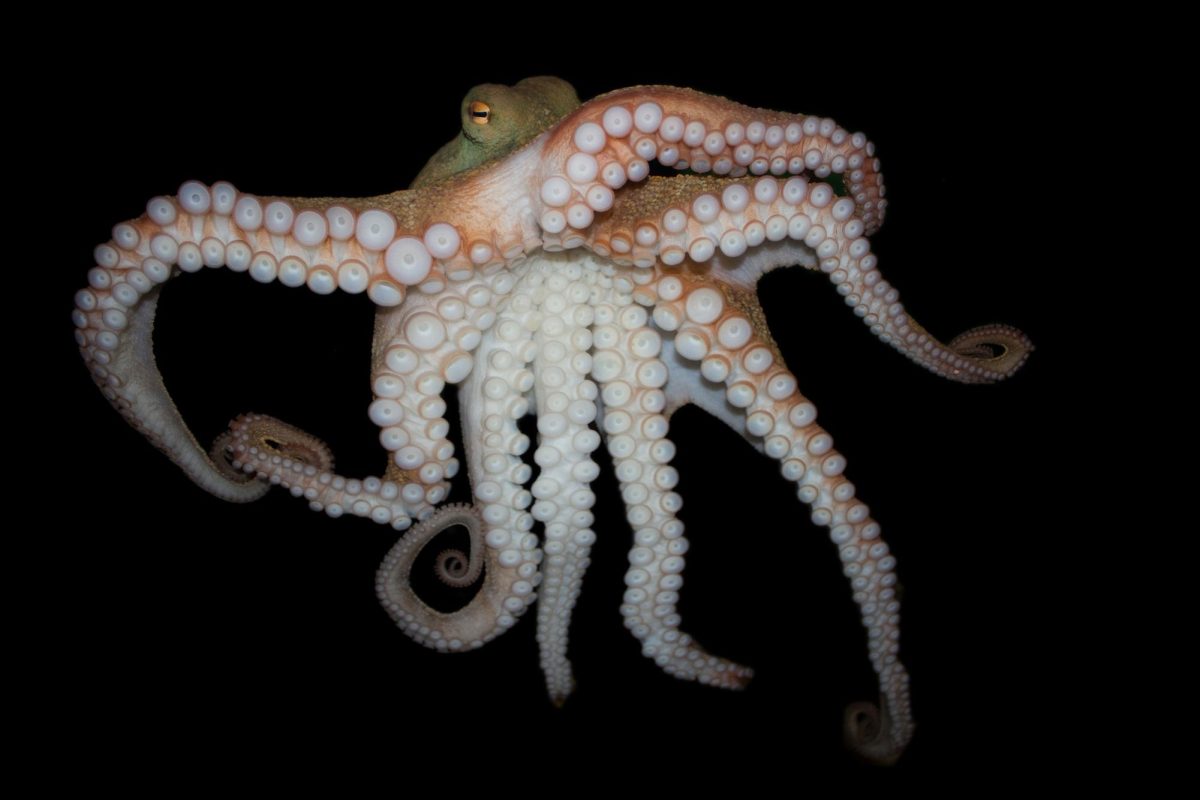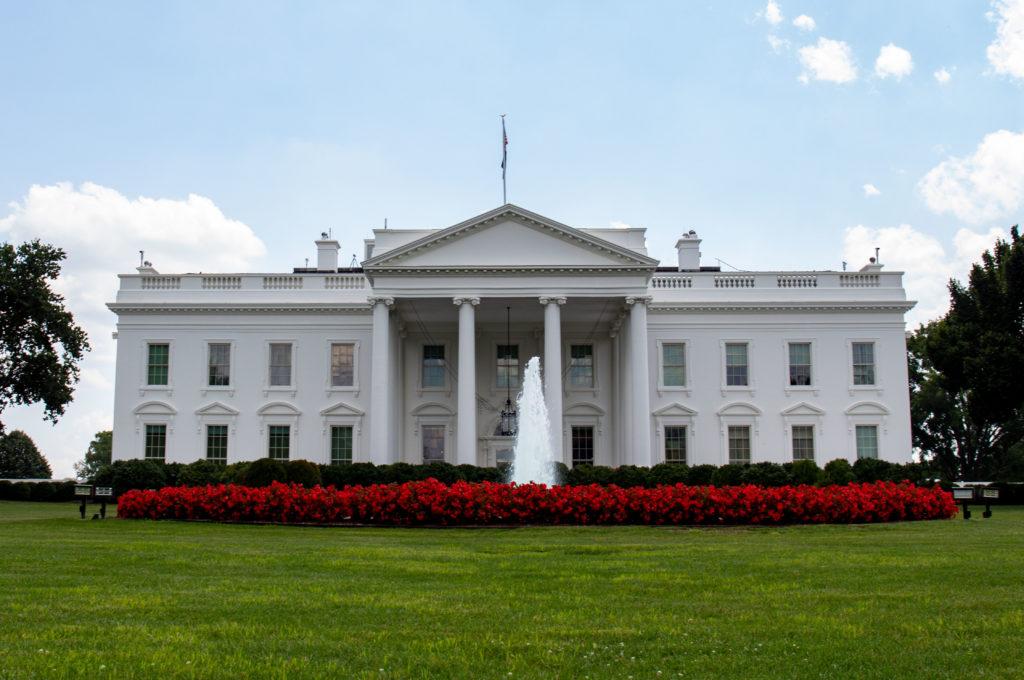Four environmental and animal rights experts discussed advocacy to stop octopus farming during a virtual event Wednesday.
Animal rights activists Laura Lee Cascada, Jennifer Jacquet, Keri Tietge and Steve Bennett discussed efforts from animal advocacy organizations worldwide to prevent raising octopuses in captivity and forcing the animals to live in poor conditions. The GW Animal Legal Education Initiative hosted the panel and featured Amy Wilson, the event moderator and co-founder of Animal Law Reform South Africa, as part of a series of events aimed at raising awareness of 2024 World Aquatic Animal Day, which takes place on April 3 annually.
Cascada, the senior director of campaigns at the Better Food Foundation, said she investigated Hawaii’s Kanaloa Octopus Farm in March 2022, which revealed poor living conditions for octopuses and a lack of government permits. She said the farm held the octopuses in rows of small white tanks with strips of astroturf on the rims to prevent the octopuses’ suction cups from helping them escape, and also allowed tourists to reach in and touch them.
“If they weren’t being actively monitored, you would start seeing octopus arms coming out and trying to escape,” Cascada said. “They would have to put them back in and cover them up.”
Cascada said the investigation began with a visit to the farm, which farm employees advertised to tourists as a “petting zoo.”
“It really turned out to be a basically massive PR effort that was really greenwashing and humane washing what was going on behind the scenes,” Cascada said.
Cascada said workers marketed the farm to tourists as conducting “valuable conservation research” that is focused on the best breeding practices for octopuses. She said her farm tour guide revealed that the company was actually going to sell its research on breeding habits to farms intending to kill octopuses at scale to meet the growing consumer demand for their meat.
“I really realized that this was not just this harmless tourist and conservation facility, it was actually a bridge to the factory farming industry,” Cascada said.
The Kanaloa Octopus Farm permanently closed in August 2023 after the Hawaiian government refused to renew its lease and permits, citing pressure from animal rights advocates and negative media exposure.
Jacquet, a professor of environmental science and policy at the University of Miami, said there is little public or scientific awareness about the harms of octopus farming because there is little research into how the animals behave.
“They are complex, sophisticated, curious individuals,” Jacquet said. “And we know next to nothing scientifically about how to give them a good life in captivity.”
Jacquet said she uncovered a campaign in 2021 by the billion-dollar Spanish seafood company, Nueva Pescanova, to build a 567,000 square-foot octopus farm in the Canary Islands. She said the company claimed the farm would reduce the impacts of octopus fishing on wild habitats, like disrupting the balance of the food chain, but she said Nueva Pescanova actually planned to continue its wild fishing operations at the same time.
Jacquet said she worries Nueva Pescanova’s octopus farm plan could lower consumer prices, potentially shifting octopus meat from a “high-end luxury” to something more affordable to everyday consumers, causing a greater incentive to ramp up farming efforts.
Tietge, the aquatic animals policy officer for Eurogroup for Animals, said Eurogroup is working with several countries in Europe to create “preemptive” legislation to prevent octopus farming. Tietge said Nueva Pescanova’s farm proposal suggested killing the octopuses by plunging them into ice baths until they freeze to death, a practice known as “ice slurry.”
“It’s actually already known to be inhumane and has been phased out of major parts of the aquaculture sector for this reason,” Tietge said. “So to start a whole new industry dependent on a method that we know causes prolonged pain and suffering for these animals, is completely unethical and irresponsible.”
Tietge said the Kanaloa farm would kill as many as one million octopuses annually. She said there is currently no European legislation in place that prevents Nueva Pescanova’s proposed practices, but a gathering of public support can help pressure policymakers to regulate the aquaculture industry.
“We need the public to be on board,” said Tietge.
Bennett, a representative for the 38th district of the California State Assembly, said he is leading legislative efforts in the United States, like the California Oppose Cruelty to Octopuses Act, to prevent the octopus farming industry from finding a home in his state. He said Washington state recently became the first to pass legislation effectively banning octopus fishing, and he wants California to become the second.
He added that environmental and animal rights advocates must stop the establishment of octopus farms before any workers are hired, as a ban would result in eliminating jobs.
“It’s important for us to preemptively try to block this before these very solitary creatures that are very territorial and would not do well at all in a commercial fishing venture get put into that unfortunate situation,” Bennett said.











